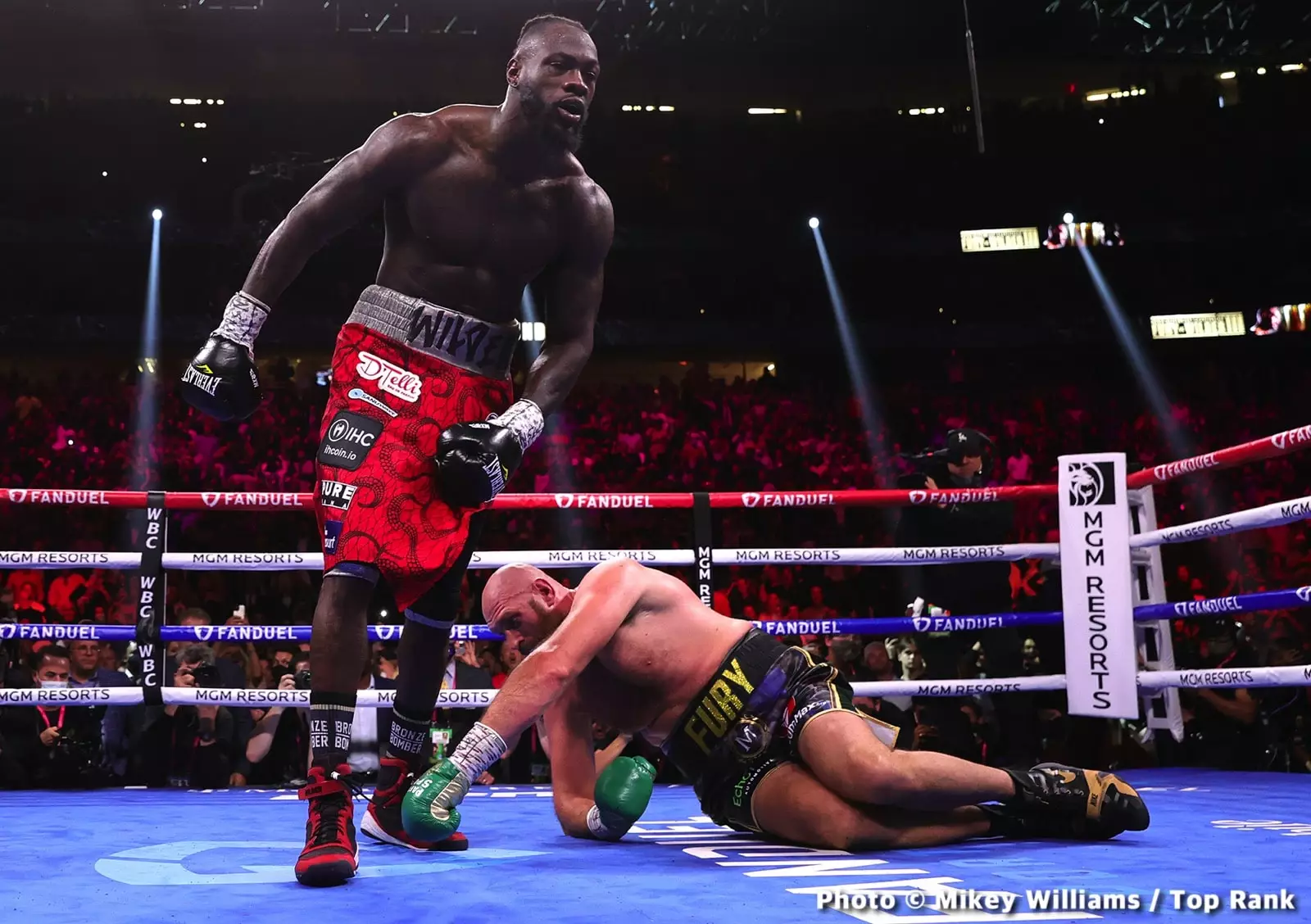When Tyson Fury faced the question of who his most challenging opponent has been in his illustrious boxing career, most anticipated the name Oleksandr Usyk to roll off his tongue. This expectation came in light of their recent encounters and Usyk’s status as the singular boxer who has bested Fury as a professional. However, in a surprising twist during a promotional event for a video game, Fury, the 36-year-old former heavyweight champion, named Deontay Wilder instead, asserting Wilder as the fighter who posed the most significant challenge. Such a statement opens the door to a profound discussion about the nature of boxing, the criteria for determining an opponent’s difficulty, and the implications of Fury’s comments for his own legacy.
Fury’s endorsement of Wilder stems from the sheer physicality and knockout power that the Alabama native brought into the ring. “I’m gonna have to say Wilder,” Fury stated, emphasizing the danger he felt when competing against a fighter whose punching ability was tantamount to a ticking time bomb. Fury’s recognition of Wilder’s “terrifying knockouts” signals that he is weighing raw power heavily in his evaluation of his toughest opponents. Logically, one would argue that Wilder’s lethal right hand posed a constant threat, turning any interaction into a potential fight-ender.
However, concurring with Fury’s assessment invites questions about the broader attributes that constitute a great boxer. Usyk, possessing a unique blend of skill, tactical intelligence, and elusive movement, presents a different kind of challenge. When analyzing boxing, one must consider not just the physical aspects but also strategic and psychological dimensions. While Wilder’s strength was formidable, Usyk’s comprehensive fighting style arguably makes him a more daunting adversary in a sustained contest. Fury’s focus on Wilder may inadvertently undervalue Usyk’s depth as a fighter.
The Weight of Legacy: Fury’s Journeys Beyond Wilder
In the realm of sports discussion, legacies are built through battles fought against a multitude of worthy adversaries. While Fury’s victories over Wilder are etched in boxing history, they alone may not suffice in establishing him as a great within the sport. Critics have pointed out that relying heavily on these triumphs could be seen as a hindrance to the narrative of Fury’s legacy. To emerge as one of the sport’s all-time greats, further high-caliber victories, particularly against fighters like Usyk, are essential.
It is worth pondering whether Fury is complacently resting on the laurels of his encounters with Wilder, or if he recognizes the need for further accolades. The potential rematch with Usyk looms large as a critical juncture in Fury’s career. This bout serves not just as a chance for revenge but as a golden opportunity to solidify his standing among boxing’s elite. Nothing would echo through the annals of boxing history quite like a victory over Usyk.
Delving deeper into Fury’s mindset leads to unsettling revelations about how he perceives Usyk. Despite the official scorecards reflecting a tightly contested bout, several observers noted that Usyk had the upper hand in several rounds, with some considering the performance a clear victory. The brutal ninth round served as a particular turning point, where Usyk inflicted serious damage, possibly more substantial than anything Wilder achieved across their trilogy.
If Fury is exhibiting denial regarding Usyk’s capabilities, this could be a psychological mechanism to cope with his loss. Often, fighters process defeat in various ways, and it appears that Fury might be doing just that. Only time will reveal if Fury will afford Usyk the respect he demands post-rematch, regardless of the outcome in their anticipated bout.
The grappling over who represents Fury’s toughest opponent unearths more than a subjectively framed debate; it opens wide an exploration of boxing’s intrinsic nature. Power, skill, legacy, and respect all play crucial roles in a fighter’s career. As Fury prepares for one of the most pivotal contests of his life against Usyk, these themes will undoubtedly resonate throughout the boxing community. Whether he triumphs or falters, the implications of this matchup will shape both fighters’ narratives moving forward.

